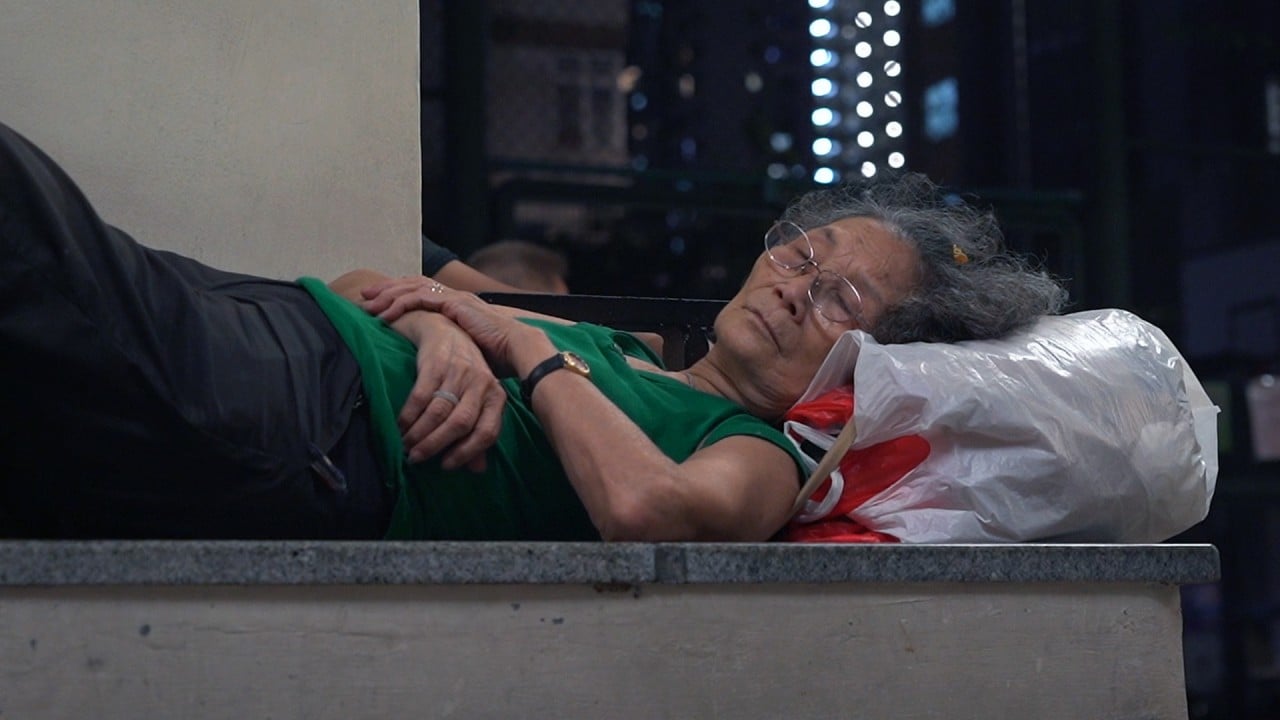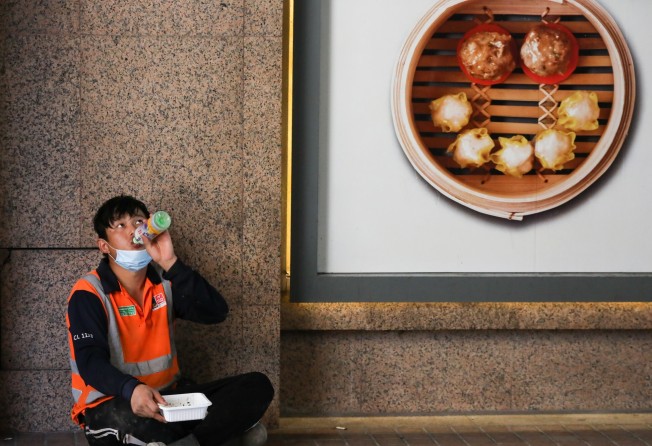
09:10
‘McRefugees’ lose restaurant shelter as Hong Kong battles third wave of Covid-19 cases

On the first day of the Hong Kong government’s short-lived restaurant dine-in ban, our social media channels were flooded with photos of outdoor workers eating lunch in the streets, parks and toilets. At a press conference, a government official implied that workers could eat in country parks. This reflects a lack of empathy and of understanding of workers’ lives. With barely enough time to finish a meal, how is it realistic to travel to a country park for lunch?
The pandemic has brought many deep-rooted social problems to the surface. It was disheartening to see construction workers on street corners eating lunch in the heat and rain. But it is important to realise these problems are not new.
Many street cleaners are used to having their meals in toilets or rubbish stations because eating in parks might be seen as skiving by their supervisors. Covid-19 is a time for us to refocus on the welfare of outdoor workers, to enhance their occupational safety and working conditions.
Singapore released a set of guidelines to improve rest spaces for low-wage workers last year. These rest spaces are to be furnished with chairs, tables and lockers for security guards and street cleaners to take a break in. Workers could also take their meals in these areas when lockdown measures are imposed. Singapore’s Minister of State for Manpower Zaqy Mohamad said: “Given the maturity of our economy and society, we can do more for the well-being of our outsourced workers”.
With many Hong Kong outdoor workers still facing exploitation and discrimination, the government must develop ‘human-centric’ policies – review outsourcing policies and address the need for proper rest spaces for workers to ensure their safety and dignity.

09:10
‘McRefugees’ lose restaurant shelter as Hong Kong battles third wave of Covid-19 cases
Apart from outdoor workers, another issue is ‘McRefugees’, the homeless who seek refuge at night in 24-hour McDonald’s branches who have now been forced onto the streets. This time, the government responded relatively quickly, announcing the opening of 19 temporary night shelters for people in need.
The government also proposed the use of temporary shelters as lunch spaces for workers. This was seen as contradictory to the point of the dine-in ban.
Gathering with masks removed is not ideal, but it is easier to monitor and maintain social distancing in these areas. Closing restaurants forces many people to have meals in their offices, while the rest can be concentrated in tightly monitored spaces with proper hygiene and distancing measures to control the spread of virus.
Natalie Chung, Oxford